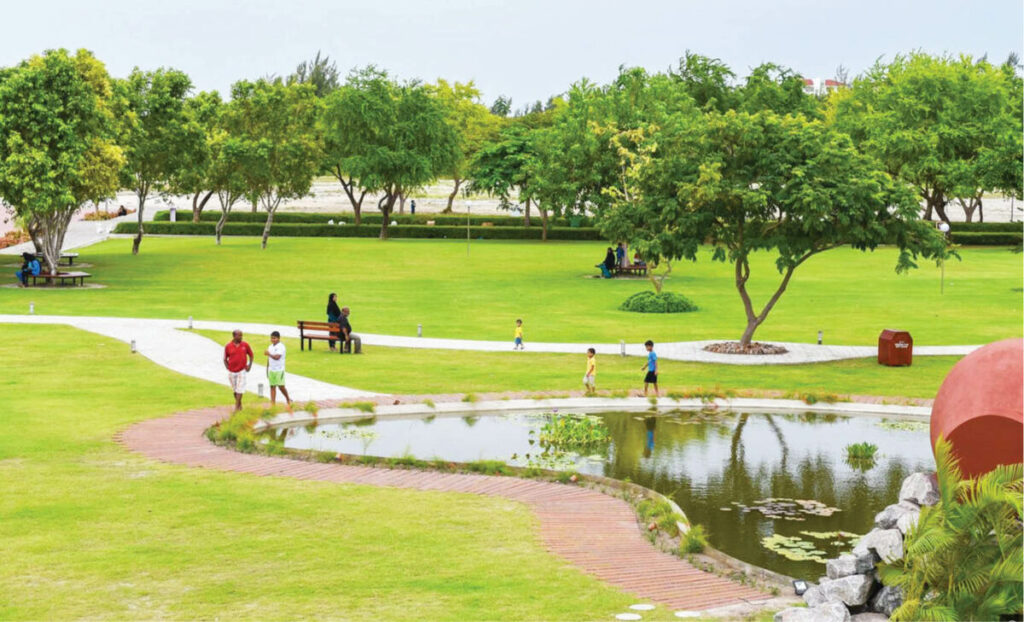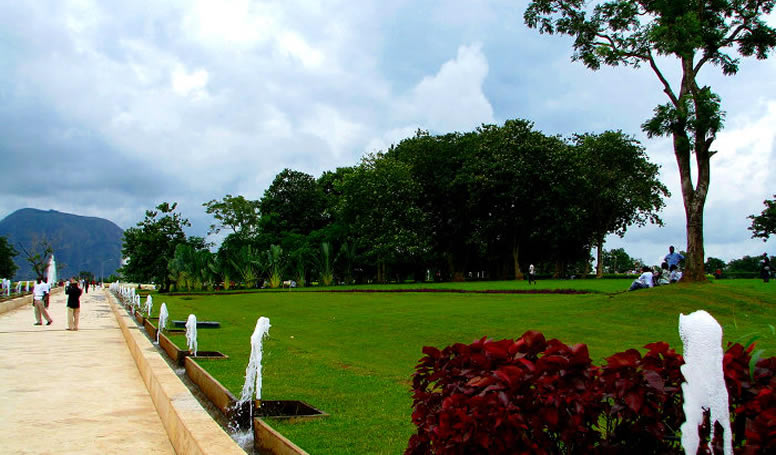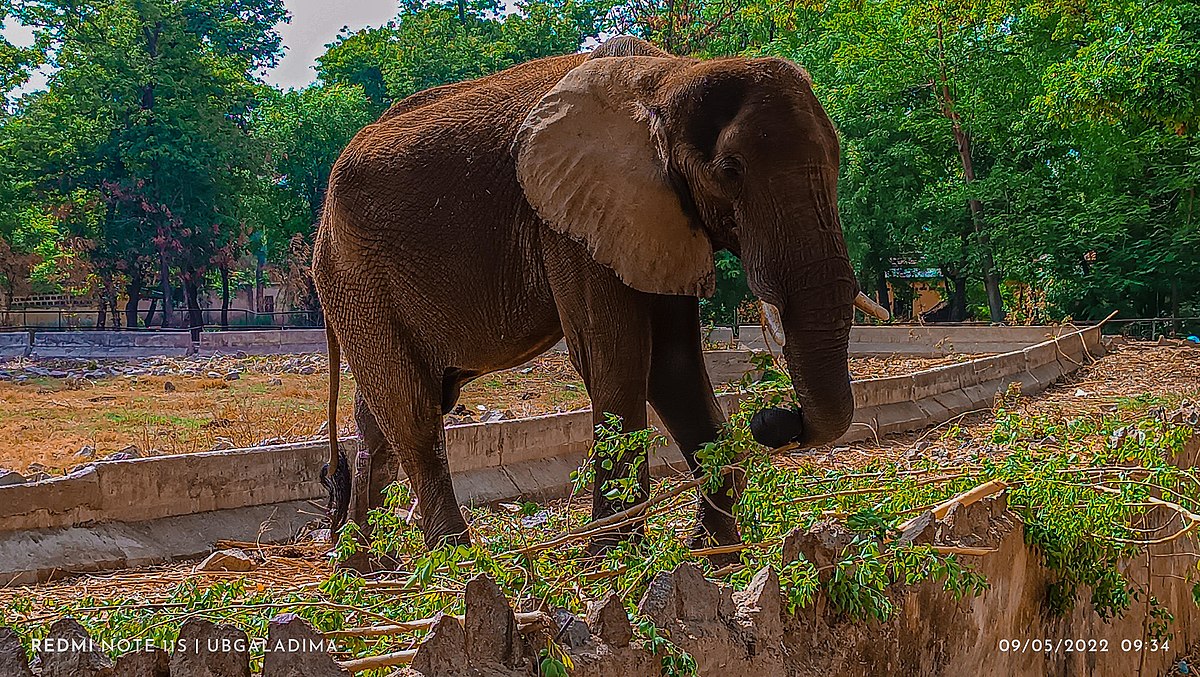The Role of Urban Green Spaces in Environmental Sustainability

As Nigeria’s urban areas continue to expand, the need for sustainable urban planning becomes increasingly critical. One key component of sustainable cities is the integration of urban green spaces. These spaces, which include parks, gardens, green roofs, and natural reserves, play a crucial role in promoting environmental sustainability and enhancing the quality of life for urban residents. This article explores the importance of urban green spaces, their benefits, and how Nigerian cities can incorporate and maintain these vital areas.
What Are Urban Green Spaces?
Urban green spaces are areas of vegetation located within cities and towns. They range from large public parks and community gardens to smaller green roofs and street trees. These spaces provide a natural environment amidst the urban landscape, offering a range of ecological, social, and economic benefits.
The Importance of Urban Green Spaces
Environmental Benefits:
- Air Quality Improvement: Trees and plants in urban green spaces absorb pollutants and produce oxygen, improving air quality. They filter harmful particulates and gases, reducing the impact of urban pollution on residents’ health.
- Climate Regulation: Green spaces help mitigate the urban heat island effect, where cities become significantly warmer than their rural surroundings due to human activities and infrastructure. Vegetation provides shade and cools the air through evapotranspiration, reducing the need for air conditioning and lowering energy consumption.
- Water Management: Green spaces play a vital role in managing urban water runoff. They absorb rainwater, reducing the risk of flooding and preventing pollutants from entering water bodies. This natural filtration process helps maintain water quality in rivers and lakes.
Social Benefits:
- Health and Well-being: Access to green spaces promotes physical and mental health. They provide areas for exercise, relaxation, and recreation, reducing stress and improving overall well-being. Studies have shown that exposure to nature can decrease anxiety, depression, and other mental health issues.
- Community Engagement: Urban green spaces serve as gathering places for communities, fostering social interactions and a sense of belonging. They provide venues for cultural events, sports activities, and social gatherings, strengthening community bonds.
Economic Benefits:
- Property Value: Proximity to green spaces increases property values. Homes and businesses near parks and gardens tend to attract higher prices, contributing to economic growth and improved quality of life for residents.
- Tourism and Recreation: Well-maintained green spaces attract tourists and residents alike, boosting local economies through tourism, recreation, and related activities. They create opportunities for eco-tourism and outdoor events, generating revenue for cities.
Examples of Successful Urban Green Spaces
Millennium Park, Abuja:
- Millennium Park, located in Nigeria’s capital, is a prime example of a well-designed urban green space. It offers a serene environment for residents and visitors to enjoy nature, with features such as walking trails, picnic areas, and botanical gardens. The park contributes to the city’s ecological balance and provides a recreational haven amidst the bustling urban landscape.

Freedom Park, Lagos:
- Freedom Park, situated in the heart of Lagos Island, is a vibrant cultural and recreational space. Once a colonial-era prison, it has been transformed into a lush park with gardens, open-air stages, and historical exhibits. The park serves as a hub for cultural activities, festivals, and community events, highlighting the potential of urban green spaces to revitalize historical sites.

Kano Zoological and Botanical Garden:
- The Kano Zoological and Botanical Garden is a significant green space in northern Nigeria. It combines wildlife conservation with botanical research and public education. The garden offers a natural retreat for residents, promoting biodiversity conservation and environmental awareness.
Strategies for Incorporating Green Spaces in Nigerian Cities
Urban Planning and Policy:
- Integrating green spaces into urban planning is essential for sustainable city development. Governments and urban planners should prioritize the inclusion of parks, gardens, and green corridors in city master plans. Policies should mandate the allocation of land for green spaces in new developments and ensure their maintenance.
Community Involvement:
- Engaging local communities in the planning and management of green spaces fosters a sense of ownership and responsibility. Community gardens, volunteer programs, and public consultations can ensure that green spaces meet the needs and preferences of residents. Encouraging citizen participation in tree planting and park maintenance initiatives can enhance community stewardship.
Public-Private Partnerships:
- Collaborating with private sector entities can provide funding and resources for developing and maintaining urban green spaces. Public-private partnerships can leverage corporate social responsibility (CSR) initiatives to support environmental projects. Businesses can sponsor parks, gardens, and green roofs, contributing to urban sustainability.
Green Infrastructure:
- Incorporating green infrastructure elements, such as green roofs, walls, and permeable pavements, into urban design can enhance the environmental benefits of green spaces. These features can be integrated into buildings, streets, and public spaces, creating a more resilient and sustainable urban environment.
Education and Awareness:
- Raising awareness about the importance of urban green spaces and their benefits is crucial for garnering public support. Educational campaigns, workshops, and school programs can highlight the ecological, social, and economic advantages of green spaces. Promoting environmental stewardship among residents can foster a culture of sustainability.
Challenges and Solutions
Land Availability:
- Challenge: Limited land availability in densely populated urban areas can restrict the creation of green spaces.
- Solution: Urban planners can identify underutilized or vacant lots for conversion into green spaces. Vertical gardens and rooftop parks can maximize green areas in space-constrained environments.
Maintenance and Management:
- Challenge: Ensuring the upkeep and sustainability of green spaces requires consistent funding and management.
- Solution: Establishing dedicated municipal departments or public-private partnerships for green space management can ensure regular maintenance. Community involvement and volunteer programs can also support ongoing upkeep.
Funding Constraints:
- Challenge: Limited financial resources can hinder the development and maintenance of green spaces.
- Solution: Exploring diverse funding sources, such as government grants, private donations, and international environmental programs, can provide financial support. Innovative funding models, like green bonds and impact investments, can also be explored.
Conclusion
Urban green spaces are essential for promoting environmental sustainability and enhancing the quality of life in Nigerian cities. By providing ecological, social, and economic benefits, these spaces contribute to healthier, more resilient urban environments. Through strategic planning, community involvement, public-private partnerships, and education, Nigerian cities can incorporate and maintain green spaces, creating a sustainable future for all.
As urbanization continues to shape the landscape of Nigeria, the role of green spaces in ensuring a balanced and sustainable development cannot be overstated. Let’s embrace the potential of urban green spaces and work together to build greener, more livable cities.
Most Recent Posts
Clean Street Initiative (CSI) is an NGO in Nigeria dedicated to fostering environmentally responsible citizens. Driven by a strong commitment to sustainability, CSI aims to inspire and educate individuals to take active roles in protecting and preserving the environment.
Contact
+234 (903) 283-3036
info@cleanstreetinitiative.org
1-5 Oba Akinjobi Rd, Ikeja GRA, Lagos




